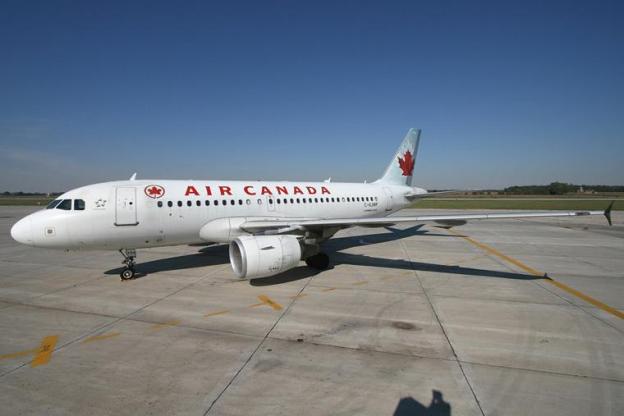
If your future flights begin to smell like there are french fries cooking in the back room, don’t be alarmed. The trend in used cooking oil as biofuel is rising, and yesterday, Air Canada became the first airline to conduct a flight using a 50/50 part recycled oil and regular fuel to power an Airbus A319.
With the recycled biofuel mixture, the flight, departing from Toronto to Mexico, was expected to generate at least 40 percent fewer emissions than regular fuel. Other measures to help derive to the 40 percent savings number include reduced thrust during take-off, adjusted air conditioning, and optimized cruising, climbing, and descending speeds. From what we can assess, Air Canada flight AC991 departed Toronto and arrived at Mexico City without any problems, landing just three minutes after scheduled time despite the apparent rainy weather.
“[Yesterday’s] flight with Air Canada proves that the aviation industry is in a strong position to reduce emissions,” said Fabrice Brégier, Airbus President and CEO. “To make this a day-to-day commercial reality, it requires now a political will to foster incentives to scale up the use of sustainable biofuels and to accelerate the modernization of the air-traffic-management system. We need a clear endorsement by governments and all aviation stakeholders to venture beyond today’s limitations.”
Air Canada aims to continue with its movement toward alternative fuel by expanding another green flight option for its Canada to Rio de Janeiro route. All parties involved with making the flight happened ensure the used cooking oil biofuel mixture has been recertified under normal jet fuel standards, therefore making it safe to power an average aircraft’s engine. This alternative fuel option may not be a foolproof way to reduce carbon emissions, but it is a big step toward greener technology since it will be impossible to stop people from traveling by air.
“Air Canada fully accepts its responsibility to reduce its footprint and our first flight using biofuel tangibly demonstrates our ongoing commitment to the environment,” said Duncan Dee, Executive Vice President and Chief Operating Officer at Air Canada. “Since 1990 our airline has become 30 percent more fuel efficient.”
While the Air Canada flight proves to have successfully tested one of the largest recycled cooking oil biofuel blends to date, it certainly isn’t the first of its kind. Last November, Alaska Airlines also attempted its own alternative fuel flight, using a 20 percent cooking oil fuel mixture to power 75 flights. While the total impact of both Alaska Airlines and Air Canada may seem small, these successful runs could mean major airlines switching to greener diesel in the near future. It will also be interesting to see if scientists will ever find a way to make a 100 percent recycled biofuel blend safe and usable.
Image Credit: Airplane Pictures


